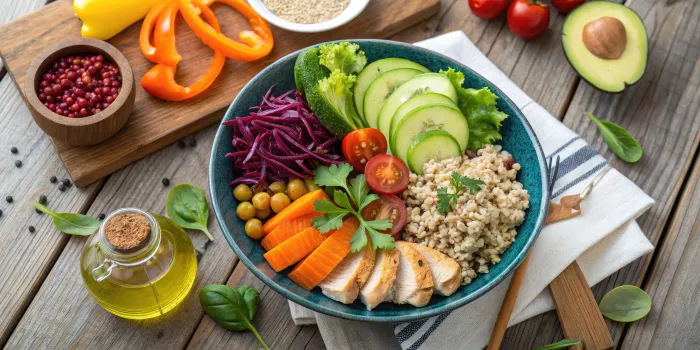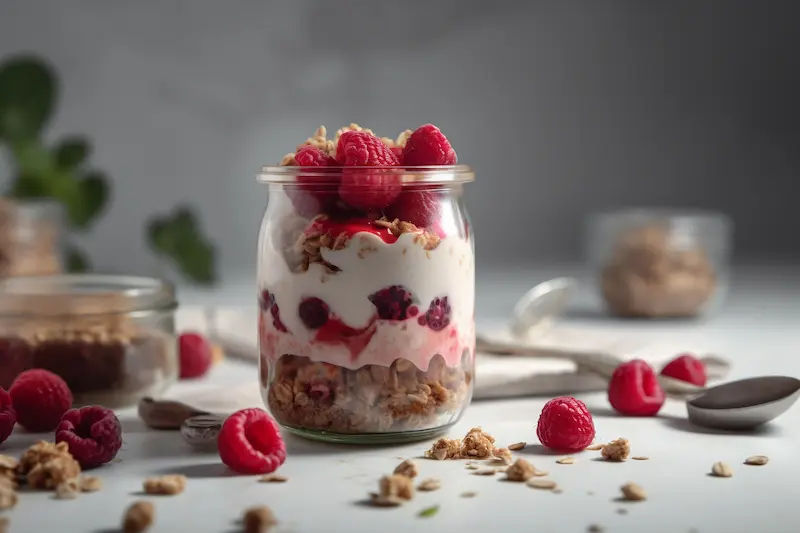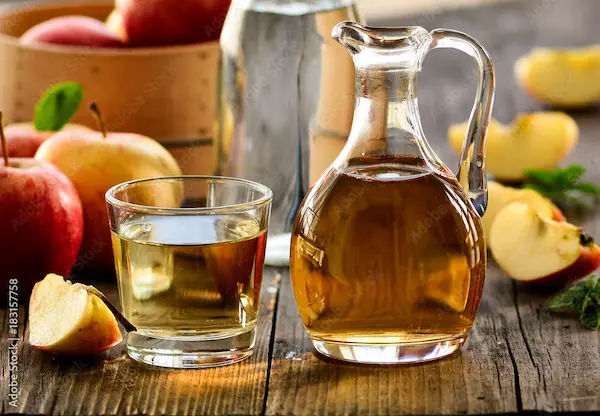Nourish to Flourish: Your Essential Post-Surgery Diet Guide
Discover the ultimate post-surgery diet guide. Learn what foods aid recovery, which to avoid, and practical tips to heal faster with proper nutrition.

Written by Dr. Md Yusuf Shareef
Reviewed by Dr. D Bhanu Prakash MBBS, AFIH, Advanced certificate in critical care medicine, Fellowship in critical care medicine
Last updated on 22nd Sep, 2025

Introduction
Undergoing surgery is a significant event for your body, and the road to recovery is paved with more than just rest. What you put on your plate plays a starring role in how quickly and effectively you heal. A proper post-surgery diet is not about deprivation; it's about strategic nourishment. It provides the essential building blocks—proteins, vitamins, and minerals—your body desperately needs to repair tissues, fight off infection, and regain strength. This comprehensive guide will walk you through every phase of your post-surgery nutritional journey, from the first sips of clear liquids to powerful meals that fuel your recovery. We’ll cover the best foods to eat, the ones to avoid, and how to manage common challenges, empowering you to take an active role in healing from the inside out.
Why Nutrition is Your Secret Weapon for Recovery
After surgery, your body enters a hyper-metabolic state. It's working overtime to repair incisions, mend soft tissues, and combat the physiological stress of the procedure. This process requires a significant amount of energy and specific nutrients. Think of food as the raw materials for a construction project; without the right supplies, the project slows down, and the quality suffers.
How Food Fuels the Healing Process
Every nutrient has a job. Protein provides the amino acids needed to build new collagen and repair damaged muscle. Vitamin C is crucial for forming that collagen and strengthening your immune system. Zinc acts as a foreman, directing the entire wound-healing process. Carbohydrates provide the energy to power these construction crews, preventing your body from breaking down its own muscle for fuel. Without adequate nutrition for recovery, you risk delayed healing, weaker scar tissue, and a higher chance of complications like infection.
The Risks of Poor Nutrition After an Operation
Ignoring your diet after surgery can lead to a frustrating and prolonged recovery. Inadequate protein intake can result in muscle wasting, leaving you weak and fatigued. A lack of fibre can lead to severe constipation, exacerbated by pain medications. Dehydration can cause dizziness, complicate medication efficacy, and slow down cellular processes. Furthermore, a diet high in processed foods and sugar can promote inflammation, working directly against your body’s efforts to heal.
The Building Blocks of a Recovery Diet
Protein: The Foundation for Tissue Repair
Protein is arguably the most critical macronutrient after surgery. It is the primary component of all cells, including those in your skin, muscle, and bones. Aim for a higher intake than usual—experts often recommend increasing protein intake by 50-100% after a major operation.
Best Protein Sources for Post-Surgery Meals
Choose easily digestible, high-quality proteins:
• Lean Meats: Chicken breast, turkey, and fish like salmon and cod.
• Eggs: A complete protein source, also rich in vitamins.
• Dairy: Greek yoghurt, cottage cheese, and milk (if tolerated well).
• Plant-Based: Lentils, tofu, tempeh, and smoothies with pea protein powder. Protein drinks after surgery can be an excellent way to meet needs if your appetite is low.
Carbohydrates: Your Body's Energy Source
Complex carbohydrates provide a steady release of glucose, the primary energy source for your brain and healing tissues. They prevent the body from catabolising protein for energy, allowing that protein to be used for repair. Opt for whole grains like oatmeal, quinoa, brown rice, and starchy vegetables like sweet potatoes. Consult a Dietician for Personalised Advice
Healthy Fats: Reducing Inflammation
Fats are essential for absorbing fat-soluble vitamins (A, D, E, K) and managing the inflammatory response. Focus on anti-inflammatory fats like those found in avocados, nuts, seeds, and olive oil. Omega-3 fatty acids from fatty fish (salmon, mackerel) and walnuts are particularly beneficial for reducing inflammation.
Essential Vitamins and Minerals for Faster Healing
Vitamin C and Zinc: The Wound Healing Power Duo
Vitamin C is non-negotiable for collagen synthesis, the protein that forms the structure of your scar tissue. Citrus fruits, berries, bell peppers, and broccoli are excellent sources. Zinc is a cofactor for hundreds of enzymes involved in tissue growth and immune function. Find it in meat, shellfish, legumes, and seeds. These vitamins for wound healing are a powerful combination you should prioritise.
Vitamin A and Iron: Supporting Cell Growth and Oxygen
Vitamin A supports immune cell function and epithelial tissue repair (skin and internal linings). Sources include sweet potatoes, carrots, and dark leafy greens. Iron is vital for producing haemoglobin, which carries oxygen to the healing site. Surgery often involves blood loss, making iron-rich foods like lean red meat, spinach, and lentils important for preventing anaemia and fatigue.
Foods to Avoid That Can Hinder Your Recovery
Why Sugar and Processed Foods Are Bad News
Highly processed foods, sugary snacks, and fizzy drinks can spike blood sugar levels and promote systemic inflammation. This inflammation can impede the healing process and weaken immune responses. These foods also tend to be low in the essential nutrients your body needs, offering "empty calories" that provide energy but no building blocks for repair.
The Problem with Alcohol and Excessive Salt
Alcohol interferes with medication, dehydrates the body, disrupts sleep patterns, and can impair immune function. Excessive salt can contribute to water retention and swelling (oedema), which may already be an issue around the surgical site. It's best to avoid alcohol completely and limit salty processed foods during your initial recovery.
Managing Common Post-Surgery Challenges
Dietary Solutions for Constipation
This is one of the most common issues due to anaesthesia and pain medications (opioids). Combat it by:
• Staying Hydrated: Drink plenty of water and herbal teas.
• Increasing Fibre: Gradually add prunes, pears, oats, and ground flaxseed to your diet after abdominal surgery or any procedure.
• Considering a Stool Softener: Your doctor may recommend an over-the-counter option.
Eating Well with a Reduced Appetite
Don't force large meals. Instead, focus on "grazing":
• Small, Frequent Meals: Eat 5-6 small, nutrient-dense meals throughout the day.
• Liquid Nutrition: Smoothies, soups, and protein shakes are less daunting and easy to consume.
• Appetite-Triggering Foods: If approved by your doctor, a small amount of ginger tea can help with nausea and stimulate appetite.
Conclusion
Your journey to recovery after surgery is a holistic process where rest, follow-up care, and nutrition are deeply intertwined. By consciously choosing a post-surgery diet rich in protein, vitamins, minerals, and hydration, you provide your body with the best possible tools to mend itself efficiently and effectively. This guide offers a roadmap, but remember that every person and procedure is unique. Use these principles as a foundation, listen to your body's cues, and always prioritise the specific instructions from your healthcare team. Recovery takes time and patience. Be kind to yourself, celebrate small milestones, and trust that each healthy bite is a step toward regaining your strength and wellness. If you have specific concerns about your nutritional needs or are experiencing persistent issues like loss of appetite or constipation after surgery, it's always best to consult a professional. You can easily consult a nutritionist or doctor online with Apollo24|7 to create a personalised recovery plan tailored to your specific needs.
Consult a Dietician for Personalised Advice
Consult a Dietician for Personalised Advice

Ms. Sushma Jaiswal
Dietician
42 Years • M.Sc.(Food & Nutrition)
Bengaluru
Swasthya Nutrition, Bengaluru

Ms. Neelanjana J
Dietician
5 Years • Bsc., Msc. Nutrition and Dietetics specialised general weight management, PCOS/PCOD weight loss and Diabetes management. A clinical dietitian with 4+ year experience specializing in evidence-based, result-oriented nutrition therapy. I have extensive experience in weight loss, thyroid management, PCOD/PCOS, weight gain, and diabetes & prediabetes care. My approach is personalized, practical, and sustainable—focusing on helping individuals achieve long-term lifestyle change rather than quick fixes. I work closely with clients to understand their medical history, lifestyle, and goals, and then design customized diet plans that support hormonal balance, metabolic health, and overall wellbeing. My goal is to make nutrition simple, realistic, and effective—so you see measurable results and feel your healthiest self.Auther in Health benefits of jackfruit (Artocarpus heterophyllus Lam.) seeds: A review (2023) The Pharma Innovation Journal Co- Auther in Malnutrition in Women: A review (2023) The Pharma Innovation Journal. Highfield Level 3 in HACCP. Highfield Level 4 International Award in Food Safety Managment
Bengaluru
Apollo Clinic, JP nagar, Bengaluru

Dr. Eti Jain
Dietician
11 Years • MSc in Nutrition
Gurugram
Diets by Dietitian Eti, Gurugram

Ms. Priyanka Saini
Dietician
9 Years • Msc (Food & Nutrition),NDEP
Ghaziabad
Dr. PRIYANKA SAINI'S CLINIC, Ghaziabad

Ms. Soma Saha
clinical nutrition
17 Years • B.Sc. - Home Science (Food & Nutrition), M.Sc. - Home Science (Food & Nutrition)
Kolkata
Dr Utsa Basu Clinic, Kolkata
(50+ Patients)
Consult a Dietician for Personalised Advice

Ms. Sushma Jaiswal
Dietician
42 Years • M.Sc.(Food & Nutrition)
Bengaluru
Swasthya Nutrition, Bengaluru

Ms. Neelanjana J
Dietician
5 Years • Bsc., Msc. Nutrition and Dietetics specialised general weight management, PCOS/PCOD weight loss and Diabetes management. A clinical dietitian with 4+ year experience specializing in evidence-based, result-oriented nutrition therapy. I have extensive experience in weight loss, thyroid management, PCOD/PCOS, weight gain, and diabetes & prediabetes care. My approach is personalized, practical, and sustainable—focusing on helping individuals achieve long-term lifestyle change rather than quick fixes. I work closely with clients to understand their medical history, lifestyle, and goals, and then design customized diet plans that support hormonal balance, metabolic health, and overall wellbeing. My goal is to make nutrition simple, realistic, and effective—so you see measurable results and feel your healthiest self.Auther in Health benefits of jackfruit (Artocarpus heterophyllus Lam.) seeds: A review (2023) The Pharma Innovation Journal Co- Auther in Malnutrition in Women: A review (2023) The Pharma Innovation Journal. Highfield Level 3 in HACCP. Highfield Level 4 International Award in Food Safety Managment
Bengaluru
Apollo Clinic, JP nagar, Bengaluru

Dr. Eti Jain
Dietician
11 Years • MSc in Nutrition
Gurugram
Diets by Dietitian Eti, Gurugram

Ms. Priyanka Saini
Dietician
9 Years • Msc (Food & Nutrition),NDEP
Ghaziabad
Dr. PRIYANKA SAINI'S CLINIC, Ghaziabad

Ms. Soma Saha
clinical nutrition
17 Years • B.Sc. - Home Science (Food & Nutrition), M.Sc. - Home Science (Food & Nutrition)
Kolkata
Dr Utsa Basu Clinic, Kolkata
(50+ Patients)
More articles from General Medical Consultation
Frequently Asked Questions
1. What are the best soft foods to eat after surgery?
Great soft foods after surgery include scrambled eggs, Greek yoghurt, mashed potatoes, blended soups (like butternut squash or lentil), oatmeal, cottage cheese, smoothies, and well-cooked, soft vegetables like carrots and green beans.
2. How long should I stay on a post-surgery diet?
The intense focus on healing nutrition is most crucial for the first 2-4 weeks. However, the principles of eating nutrient-dense, whole foods are beneficial for long-term health. Always follow your surgeon's specific recommendations for dietary duration, especially if you had abdominal surgery or other major procedures.
3. What should I drink after surgery?
Water is the best choice. Herbal teas (like peppermint or ginger for nausea), clear broths, and diluted fruit juices are also good options. Protein shakes can be useful if you're struggling to eat. Avoid caffeine and alcohol initially, as they can lead to dehydration.
4. Why is constipation so common after surgery, and how can I prevent it?
Constipation is primarily caused by anaesthesia and opioid pain medications, which slow down digestive tract movement. Prevent it by staying well-hydrated, incorporating high-fibre foods as soon as your doctor allows, and moving around as much as is safe. Your doctor may also recommend a stool softener.
5. When should I call a doctor about my post-surgery recovery?
Contact your doctor or consult a surgeon on Apollo24|7 if you experience signs of infection (fever, redness, pus from the incision), severe pain not controlled by medication, persistent nausea/vomiting that prevents you from keeping liquids down, or no bowel movement for over 4-5 days.




